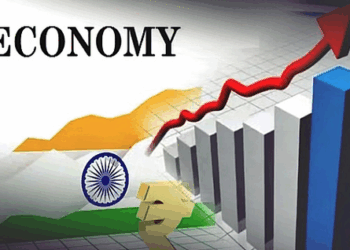Chennai: The Indian corporate sector is a mix of large and small players and it is factually incorrect to conjecture that industrial concentration power dictates their pricing capacity, said a top economist of the State Bank of India (SBI).
The report authored by SBI’s Group Economic Advisor Soumya Kanti Ghosh, rejects the views of Professor Viral Acharya in his Brookings Papers on Economic Activity, Spring 2023.
According to the SBI report, Acharya in his paper had said that “reason why the persistence in the core inflation is rising is that consumers do not seem to be fully benefiting from input price declines, which may be due to greater pricing power in increasingly concentrated industrial organisation structures”.
“What lends some credibility to this thesis is the observation that in contrast to the rest of the world, India’s core inflation is rising more in Goods, where its industrial sectors are increasingly concentrated, than in Services, though there are early signs of pricing power rising in the Services sector too.”
Recently, consumer price index (CPI) inflation moderated to an almost 15-month low to 5.66 per cent in March 2023.
The core CPI (which was sticky for almost one year) also moderated to almost 2-years low to 5.74 per cent in March 2023, said Ghosh.
Ghosh tested the hypothesis whether India’s high core inflation is due to the pricing power enjoyed by industries and their structure by studying seven sectors where Oligopoly (markets dominated by small number of players — telecom, basic metals); Oligopsony (market where small number of buyers exist — passenger cars/two wheelers) and Monopsony (one buyer market, where is no evidence of monopoly control).
He studied seven industrial sectors — Telecom, FMCG, Two-Wheeler, Passenger Vehicles, Retail Trade, Steel and Basic Metals.
“Based on the presence of major players across sectors and the concomitant market share in respective sectors, we adjusted the respective CPI weights and estimated ‘CPI Industrial Concentration Index’ for the period Jan’15 till Mar’23,” Ghosh said.
The resultant “CPI Concentration Index” results show that estimated Concentration CPI is consistently less than the Core CPI since January 2015.
For a brief period beginning Jan’20 till Nov’20 and also during the pandemic as supply disruptions weighed heavily, the estimated concentration CPI was higher than the core CPI.
“The findings suggest that the increase in prices during the pandemic was more on account of supply chain and logistical disruptions caused by the pandemic and after the outbreak of the war in Ukraine rather than firms increasing prices because of higher pricing power. It is thus incorrect to infer that Industrial Concentration dictated pricing capacity of firms,” Ghosh said.
It is the food CPI which impacts the General CPI and not the Core CPI, he added.
(IANS)















